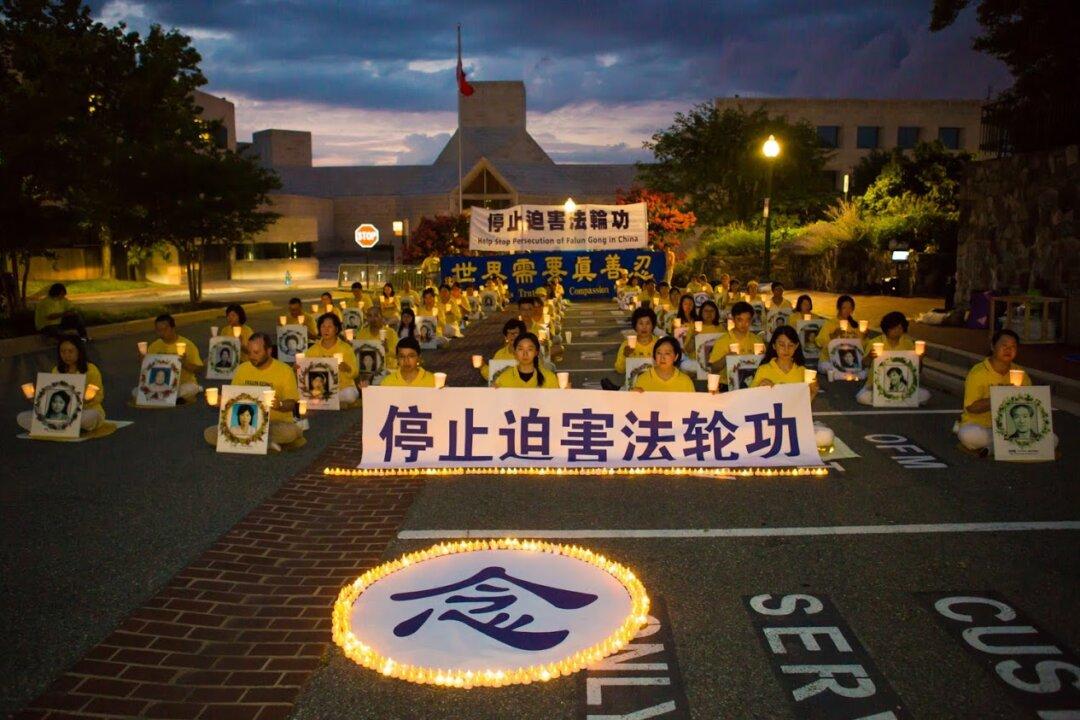On a sunny day in April, 1972 I walked into the courtyard of a dormitory at the University of Chicago and felt I had found my fate. With austere, gray limestone walls and tall, leaded-glass, casement windows the place seemed to me to resemble nothing so much as a monastery. I felt that here one could do something out of the ordinary.
The alternatives I knew of in life seemed to my adolescent mind hollow. I wanted something real. If you had pressed me as to what that meant, I would have with some embarrassment said I was looking for wisdom and beauty.
My case is hardly unusual. In my generation, students came to the College to study the great books. Today, they come looking for “seriousness” and “intellectual rigor.”
In any case, students have been attracted by the idea of the University of Chicago, by the promise that it was a different kind of place that offered unique possibilities based on the principles it upholds.
The university markets itself in this way. In my email today comes a message from the university’s president promising that a new multi-billion dollar fundraising campaign is “built upon the University’s fundamental values and distinctive culture.”
Unfortunately, the university administration is threatening those values and that culture as it seeks to renew, in what is possibly an irregular way, the University of Chicago Confucius Institute.
Governance
The People’s Republic of China first got into the business of setting up Confucius Institutes ten years ago. The Institutes are presented by the PRC as educational—they teach Chinese language and culture. In fact, the educational mission of the institutes is a façade; their real purpose is propaganda.
At the typical Confucius Institute, the PRC determines the curriculum, and provides instructors and teaching materials. In the Institute’s version of China, certain topics, such the 1989 Tiananmen Square massacre, the occupation of Tibet, or the persecution of Falun Gong, are kept out of sight, while other topics are given a slant that suits the officials back in Beijing.
Five years ago the University of Chicago opened its own Confucius Institute. Measures were taken to try to insulate the University of Chicago Confucius Institute from being seen as a tool of the PRC.
The University chose to ignore certain provisions in its agreement with the Institutes’ headquarters—known as Hanban. While the contract specifies that Hanban provides the curriculum and materials for instruction, the university demurred. The PRC has been eager to sign up a top research university like the University of Chicago and has gone along with this breach of the standard agreement.
The university accepts language instructors chosen by Hanban from staff in mainland China, and research funds are made available to university faculty.
The contract for the University of Chicago Confucius Institute is now up for renewal, and Professors Bruce Lincoln and Marshall Sahlins have sounded an alarm.
They have released a petition signed by 108 University faculty, including 37 endowed chairs and 7 departmental chairs, that asks that the renewal be voted on by the faculty.
The administration does not dispute the petition’s claim that “it is generally acknowledged that decisions concerning the establishment of entities with teaching responsibilities (‘education’) fall within the purview of the Council [the faculty-elected Council of the University Senate] for approval.”
Instead, faculty who support the renewal of the Confucius Institute claim that the majority of its budget goes to faculty research. I believe the opponents of the Institute who say that this assertion is a bean counter’s dodge.
A single quarter’s sabbatical for one full professor will likely equal or surpass the cost of a few imported language instructors for a year. But that doesn’t change the fact that a core function of the Institute is education.
The preservation of faculty governance is a key issue, but the problems raised by the University’s embrace of the Confucius Institute go far beyond whether the faculty or the administration has the authority to decide on whether the Institute goes or stays.
Research
The research funds from Hanban are likely to make an unfortunate tendency in the academy worse.
The title of a 2007 article in the Far East Economic Review pulls back the curtain on a common scandal among those who study China in the West: “Have China Scholars All Been Bought?” (see also Perry Link’s 2002 article, “The Anaconda in the Chandelier”)
The first paragraph of the economist Carsten Holz’s article lays out the problem: “Academics who study China, which includes the author, habitually please the Chinese Communist Party, sometimes consciously, and often unconsciously. Our incentives are to conform, and we do so in numerous ways: through the research questions we ask or don’t ask, through the facts we report or ignore, through our use of language, and through what and how we teach.”
Beijing approves all of the research projects funded by the University of Chicago Confucius Institute. The incentives the CCP wields over China scholars have thus now been brought inside the institute, as its China scholars apply through it to the CCP for scarce research funds.
Defenders of the Confucius Institute claim that Beijing has not turned down a single research proposal at the University of Chicago. Why should there be any refusals? What Holz points out in his devastating critique is the degree to which scholars in the West are already conditioned only to do the research that they know the CCP will approve.
The University of Chicago, by allying with Hanban, has given its imprimatur to what the researcher imagines the CCP wants to hear. The psychological strong arm put on the scholar comes dressed not in the CCP’s customary blood red but rather in university’s favored shade of maroon.
Discrimination
A few years ago the distinguished sinologist Anthony Yu spoke at a conference for Confucius Institute language instructors in the United States.
Yu told the Chicago Tribune that only a few of the instructors were fluent in English, and most had not been trained as language instructors.
“If they can’t speak English, what do we need them for? Why not hire locally?” Yu said to the Tribune. “Plenty of Chinese-Americans are bilingual.”
The University doesn’t need these imported instructors, but Hanban needs them. They have been trained, and can be relied on, to direct discussion along approved channels.
I suppose the University can survive a few instructors who may be of questionable competence and have an agenda, but their hiring comes at a steep cost that Hanban cannot reimburse.
Lincoln and Sahlins’ petition mentions the case of a Confucius Institute instructor at McMaster University in Canada. Once safely in Canada, she revealed that in order to be accepted as an instructor, she had to deny her practice of Falun Gong. Implicated in discriminatory hiring, McMaster chose not to renew its contract with Hanban.
The principle of non-discrimination is the crown jewel of American constitutional law. America had to pass through monstrous crimes and suffering, a horrific civil war, and then a century-long political struggle before the promise of equality for all made at the country’s founding became effective law. For any American institution knowingly to violate this legacy is shameful.
But the University of Chicago is not any institution. When other top schools throughout the United States placed explicit or hidden barriers before women, blacks, Jews, or, most recently, Asians, the University of Chicago welcomed them. It discriminates in favor of the intelligent and the industrious. Come here, show us what you’ve got, and there will be a place for you.
Now, the University is complicit in the Hanban’s religious discrimination. The university’s only possible defense is that it is not the one doing the discriminating; Chinese people are discriminating against other Chinese people. Such a plea is not heard, because it would suggest something worse than the original offense.
Engagement
Why would the university sully such a proud tradition? No clear answer has been given. At least, I am not aware of the administration offering any sustained, public defense of having a Confucius Institute on campus.
There have been vague statements about how bringing Chinese scholars to the university and funding the work of the university’s scholars in China will move China toward greater intellectual freedom.
And, of course, there is the money the Confucius Institute brings to campus. Beyond the Institute’s money, the university presumably wants to keep open the flow of Chinese students, highly valued because they pay full tuition—a flow the PRC could diminish at any time.
We have seen this movie before, and it didn’t turn out well. Over thirty years ago, U.S. businesses that wanted to begin doing business in China began floating self-serving arguments for engagement with the PRC.
The businesses said they would make a profit in China’s immense market and, while doing so, would bring Western business practices and values to China. In the jargon of the time, it was a win-win.
What happened? Western businesses, rather than bringing Western values to China, often found their own corporate culture threatened by the corruption endemic in the communist-run state.
Instead of making profits, company after company that set up shop in China had to relinquish its proprietary intellectual property, or had it stolen by “partners” the regime forced on them. Typically, those partners would learn the business from the ground up and then set up a competing company that would corner the market share, leaving the American company to miss out on the promised China dream.
The university apparently wants to believe it can take the PRC’s money and in doing so move the PRC in the direction of Western liberal values. Like the hard-headed American businessmen before it, the university administrators assume they can do well for the university while doing good for China.
This convenient belief assumes either that the CCP really wants to move in the direction of the West or that the university’s administrators are so clever they will be able to outwit the Party’s cadres.
Propaganda
On Jan. 14, 2010 the PRC’s vice minister of education, Hao Ping, said in a speech at the ministry’s annual meeting: “Expanding education to foreign countries has become a major aspect of our country’s development, a major strategy and component in foreign affairs and foreign propaganda... Improving the construction of the Confucius Institute is a strategic plan for our building our country’s soft power; it is also a honorable mission the Central Government bestowed upon us [the Ministry of Education].”
In November, 2011 Li Changchun, who was then a member of the CCP’s top body, said in a speech given at Hanban: “The Confucius Institute is an appealing brand for our culture to go abroad. It has made an important contribution to improve our soft power. Using the brand of ‘Confucius’ has a natural affinity. Using the method of teaching Chinese language, everything looks reasonable and logical.”
When Li Changchun speaks of everything looking “reasonable and logical,” he is saying that the Confucius Institutes provide a false cover for effectively accomplishing the CCP’s propaganda goals in the West, which can be summed up as increasing the PRC’s soft power
The CCP leadership’s understanding of soft power has been well documented. Soft power involves infiltrating the CCP’s culture into the West.
Such infiltration does not consist of spreading Mao Zedong thought—hardly anyone in China today believes in communism. What the leaders of the CCP do believe in is the Party’s continued rule of China
“Infiltration” does not need to spread a dogma; it only needs to disarm the critics of the PRC. If the West is rendered intellectually defenseless, then the CCP’s ambitions may go unchallenged.
The Confucius Institutes help assure that those who should be giving the West a clear and critical picture of China will operate within boundaries that the CCP is comfortable with.
Complicity
I wonder if the university’s administrators have reckoned with the awful responsibility they have assumed by partnering with Hanban.
The administrators know, or at this point certainly should know, that they have allied the university with a propaganda organ of the CCP. With that knowledge comes some accountability for what that propaganda serves.
The false front presented by the Confucius Institute enables it to borrow the good name of the University of Chicago. It is not the “People’s Republic of China Confucius Institute.” It is the “University of Chicago Confucius Institute.”
When others see the University’s good name, they tend not to see the true image of CCP that is hiding behind it. The CCP thus gains legitimacy by poaching off of the university’s brand. The Party appears to be an ordinary part of Western society, allied with a worthy institution.
Lulled in this way into accepting the CCP, people may tend to forget the CCP’s crimes. I don’t mean its 93-year-long record of criminality, including the deaths of between 40 to 80 million of China’s people, depending on which authority one believes. I mean the crimes going on at this moment inside the PRC.
Tibet is burning. 130 Tibetans have self-immolated since March 2011.
Xinjiang Province, home of the Uyghur Muslim minority is restive, with continuing reports of violent attacks against Han authorities.
In both Tibet and Xinjiang, the situation is the same: the populations have been pushed beyond endurance by the CCP’s minority policy, which seeks to stamp out their religion, culture, and language.
The predominant Han regions are also a powder keg. Beijing University Professor Sun Liping estimated 180,000 mass incidents occurred in 2010. A “mass incident” is a protest or riot of more than 50 people.
The greatest number of these incidents results from corrupt Party authorities taking farmers’ land while giving little or no compensation.
The Falun Dafa Information Center estimates that hundreds of thousands of Falun Gong practitioners are detained at any one time in China. Those detained suffer brainwashing and torture, and may become victims of forced organ harvesting. Researchers estimate that in the years 2000–2008 65,000 practitioners were murdered through organ harvesting, and there are no signs the atrocity has stopped.
Dystopia
The propaganda advantage the Confucius Institutes bestow on the CCP goes beyond providing a positive image that helps provide cover for the regime’s disastrous human rights record. The institutes also both distract from and advance the CCP’s larger ambitions.
The key to understanding the CCP’s situation is the Great Chinese Firewall. This high-tech tool for the suppression of free speech on the Internet, built largely by American companies, serves as a vital membrane for the PRC.
The Firewall, along with its associated technologies for monitoring the Chinese people’s every move, allows the CCP to keep out of China the thoughts and information the Party feels threatened by.
The Party understands that it can survive only in an environment that it controls, which means it is locked in a death struggle with the West’s openness and democracy.
The CCP has exported its Firewall technology to other repressive regimes, and it offers dictators succor. Some of the worst regimes in the world, such as North Korea, Zimbabwe, and Sudan, are its clients.
The CCP has also begun speaking more and more loudly in international forums about how it offers an alternative to the United States. In the long game the CCP is playing, either it defangs Western societies—infiltrates them—so that they no longer pose a threat, or the West, by the natural, attractive power of its example of ordered freedom, undoes the CCP.
A Confucius Institute is the friendly neighborhood face that helps conceal the world-straddling dystopia at the heart of the CCP’s ambitions, while working slowly to change the way the West thinks.
Freedom
Universities require freedom. Free inquiry requires release from the constraints of making a living that necessarily dominate society and release from the demands of political power, which tends to want to have what is true line up with the ruling ideology.
By supporting free universities the commercial societies of the West recognize there are purposes in life not fully realized in the marketplace. Through patronizing universities societies ennoble themselves while also enriching themselves, materially and spiritually, with the products of untrammeled inquiry.
The Confucius Institute answers a legitimate need for a free university by providing a forum for China’s intellectuals at the University of Chicago. I would be the last person to suggest that the University of Chicago not engage with China’s people. In fact, I have a modest proposal.
Let the university take the interest from the smallest shaving off of a tiny part of its enormous endowment and fund the Gao Zhisheng Institute.
Gao Zhisheng is the heroic human rights lawyer who currently resides in a prison in Western China. He, more than any other individual, has inspired a generation of lawyers and activists who on a daily basis display breathtaking courage, acts that receive far too little attention in the West.
These individuals bear names such as Teng Biao, Jiang Tianyong, Tang Jitian, Wang Cheng, and Zhang Junjie—names Westerners have difficulty pronouncing, much less remembering. They risk torture and death to defend Falun Gong practitioners, house Christians, protesting farmers, and other “enemies” of the regime.
They do so in order to bring the rule of law to China and with it the promise of political liberty.
Let the Gao Zhisheng Institute from time to time invite one of these lawyers or the brave people they defend to come to the university and speak about the value of freedom and its costs.
Let the University of Chicago lend its good name to the celebration of courage in the face of oppression and the promotion of the rule of law around the world.
No Vote
If the university were to raise funds on the basis of advocating for liberty, I would predict it would do far better than it does from Hanban’s handouts.
And by aligning itself with freedom the University of Chicago at least would place itself on a basis that can be defended.
There are no free universities in the PRC, and the Confucius Institutes are meant to help bring the West in line with Beijing, not the reverse. In choosing to continue to ally with Hanban, the University of Chicago would betray its mission, its traditions, and the free society that has so generously supported it.
Nonetheless, the administration seems intent on pushing renewal through. The spokeswoman for the executive committee of the faculty council has said she does not anticipate a vote on the issue.
While the administration appears ready to ignore the faculty’s petition, I wonder how it would respond should the alumni speak up.
The gothic architecture that made such a strong impression on me in my youth is, of course, fake. But it gives dignity to the place. Even today, it is easy to imagine that the university’s impressive gray skin guards safely its “fundamental values and distinctive culture.”
If the alumni decide the Confucius Institute can never be at home with those values and that culture, perhaps the administration will reconsider.
Stephen Gregory earned a B.A. and an M.A. at the University of Chicago, where he has also served as an administrator.




